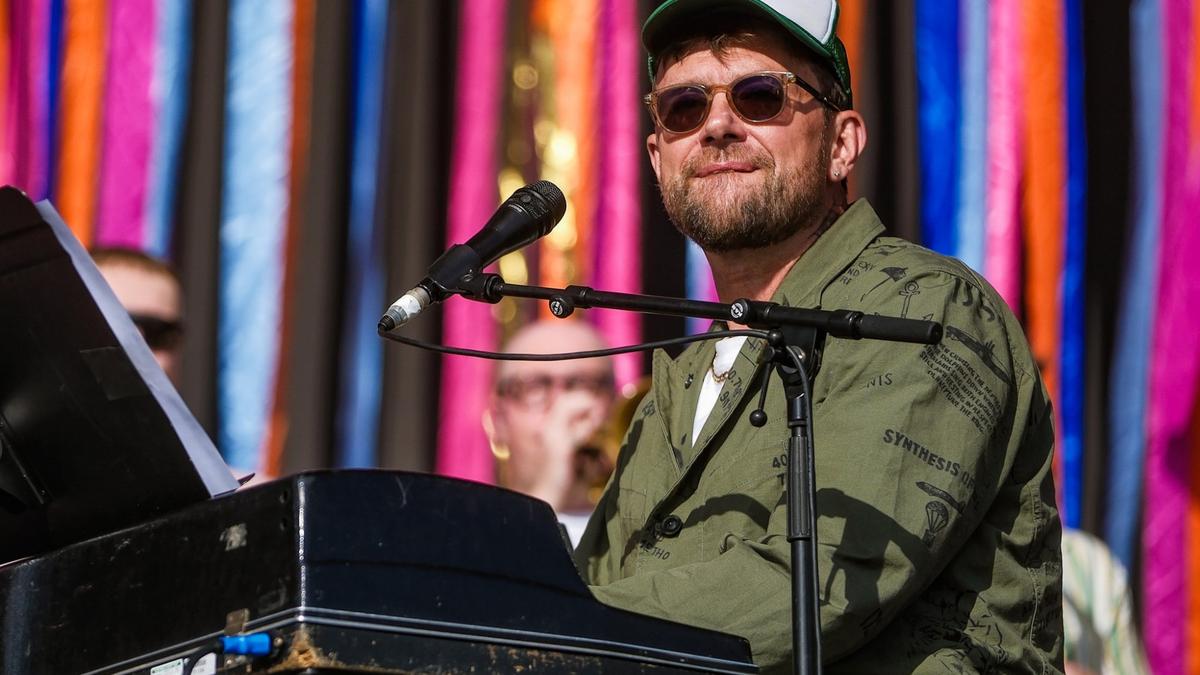Copyright Essence

Microsoft returned to AfroTech in Houston for the second year to champion Black excellence in tech—bringing together creatives, innovators, and future tech leaders during its three-day House of Black TechXcellence experience. This year’s programming drew more than 500 attendees downtown Houston at Studio Eight08—a Black-owned art gallery and creative lounge founded by DJ and producer Tay Powers. Its signature evening experience, Creator Unplugged, which aims to celebrate culture, creativity, and community through innovation, kicked off Thursday evening with immersive activations, displays of Microsoft’s latest AI tools, including Copilot, interactive demos and panels from voices across industries focused on mentorship and community. Rooted in intention, connection, and a dedication to celebrating Black excellence in tech and beyond, Creator Unplugged is solidifying its place as one of Microsoft’s marquee events beyond the main AfroTech stage. “Black TechXcellence is more than just Black people in tech reuniting for a week at the world’s largest, premier gathering of Black tech innovators, engineers and creators,” said Makeda Bell, Microsoft’s Senior Communications Manager. “It’s really the recognition of what it took to even have something like this.” “For Black people to be making waves in technology, you have to always be more,” she added. “Being good has not become the new average. Excellent is the great, and I think that Black people are leading the charge when it comes to tech, just like they are with culture. I really wanted to have something that brought that community of house along with the celebration of Black people who are killing it when it comes to the tech game and really leading the charge.” With music by Classic Newwave and Yannick Jones, the evening opened with “Copilot Culture: Reshaping the Creative Game,” featuring insights from Microsoft CEO of AI, Mustafa Suleyman and local filmmaker and producer Issac Yowman. It was followed by “The Beauty of the Build: Black Women Building Bold Legacies Together,” moderated by Bell, spotlighting the work of corporate strategist and lifestyle curator, Jodie Taylor and Topicals founder and CEO, Olamide Olowe. Suleyman, Microsoft’s CEO of AI, attended AfroTech for the first time this year, and said he was excited to attract talent that would help the technology company be more radical and audacious as it transitions to become more self-sufficient and build its own models. “My job is to create the air cover for everybody here to be more radical than they otherwise could be,” he said. “I try to create a little bit of space so that people can take risks. And that also applies to the outside. I’m trying to bring people in who can challenge and bring a different perspective. That’s important to me personally, and it’s good for the company as well.” Microsoft may not have traditionally resonated with younger audiences, Suleyman said, but its ascent in generative tech, particularly a top 10 ranking on LMArena for its text-to-image model, is shifting perceptions. Suleyman said that in tech, there’s an assumption that you must have a computer science degree or have gone to the right schools to be successful. As someone who challenged that notion with a philosophy degree, Suleyman said he loves what Black TechXcellence represents: evolution and inclusivity—where technology is truly accessible to everyone. “It’s inviting people to be proud of, whether they have a technical background or not, having the confidence to believe that they can shape technology,” he said. “It’s like a clay that everyone has access to and anyone can sculpt. I think there’s a kind of fear that is like a hangover from the past, which is still leading people to be cautious about it. And that’s why I wanted to be at AfroTech, that’s why I wanted to be at this event, because I want to encourage people to hurry up and get involved. The sooner you adopt, the sooner you can co-op, take control, and lead it.” While the emergence of artificial intelligence dominated the conversation, Suleyman and Yowman made sure to speak to some of their fears and the dangers of relying on it. “I think AI is a very powerful tool, but I think it’s extremely important for us to understand that it is a tool,” Yowman said. “We cannot let the tool become the carpenter.” It’s something that also makes Suleyman anxious. “The code is the key beast, he said. “I think a lot of people get involved in the super part of it, which is exceeding human performance in all tasks,” Suleyman continued. “That makes me very anxious because I don’t really know how you control or rely on something that is infinitely more powerful, and more intelligent, and robust. So I think we have to start with the intention that it is in service of humanity, in our corner, on our team and designed to be a humanist consumer intelligence. If it’s not serving us, technology has failed.” The event concluded with a panel addressing the underrepresentation of Black women in tech and innovation. Speakers Olamide Olowe and Jodie Taylor shared how they built boldly—without fear of failure or embarrassment—and emphasized the importance of not merely occupying space, but actively shaping it and creating opportunities for others. “If only one percent of us are in these boardrooms, we have to make sure we’re successful so that more women can follow behind,” said Olowe.



